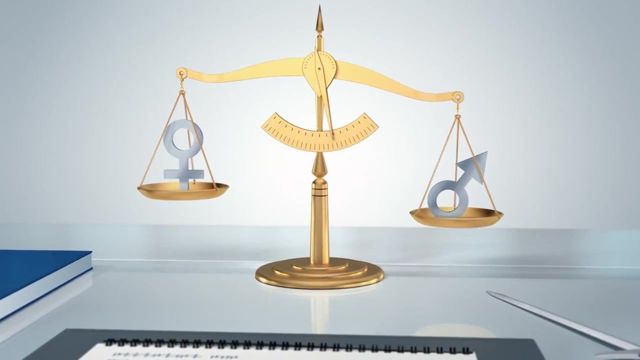If a married couple separates, then the parent with whom the joint children will live needs to know how to apply for alimony in order to regularly receive funds for their maintenance.
According to Chapter 15 of the Family Code of Ukraine, parents must support their child until he reaches adulthood.
If the court deprives the father or mother of parental rights, the parent does not get rid of the obligation to financially support the child.
For those who are interested in the procedure for depriving parental rights and the legal consequences of the procedure, it is useful to familiarize yourself with more detailed information about this Deprivation of Parental Rights.
The mother and father are exempt from the need to support the child if the minor family member has a personal income that covers all his needs and significantly exceeds the income of the parents.
If both parents are deprived of parental rights and the child is placed in the care of the juvenile service, money is withheld from the father and mother as alimony and transferred to the child’s personal savings account.
Collection of child support
If children live separately only with their mother, separately from their father (or vice versa), the costs of their maintenance are divided voluntarily or in court.
Sign up for a consultation
‹ ›
The procedure for collecting alimony depends on the agreement of the parents. If the father agrees to support the children after the divorce, then he voluntarily transfers funds to their mother. A parent who lives separately can submit an application for deduction of child support for a child or children at the place of receipt of income:
- official employment;
- pension fund;
- educational institution that awards the scholarship.
The application indicates the frequency, amount of alimony and details of the recipient. The organization to which the application is submitted is obliged to withhold and transfer funds. Alimony must be calculated from the applicant’s income no later than 3 days from the date of payment of wages, pensions, scholarships. Please note that the application can be withdrawn by the initiator at any time without specifying the reasons.
Parents have the right to enter into an agreement on the transfer of alimony and have it notarized. Article 189 of the Family Code provides that if a parent does not fulfill his obligations under the agreement, alimony will be forcibly collected from him on the basis of a notary’s writ of execution.
By mutual agreement, a parent can avoid paying child support if he transfers ownership rights to real estate to him by notarizing a deed of gift.
If the parents cannot mutually decide on the order of deductions, or the mother does not agree with the amount of the amount received, then she can sue for forced collection of alimony.
Applying to court to collect alimony
The parent with whom the children live together can go to court to collect alimony. A dispute over the collection of alimony in Ukraine is opened in the court at the place of residence of the applicant or defendant.
The procedure for going to court consists of the following main stages:
- collection of necessary documents;
- going to court - you can read more about drawing up a statement of claim and the procedure for filing it here Statement of Claim for the recovery of alimony;
- opening of court proceedings - a judge responsible for considering the case is appointed, of which the plaintiff is notified;
- receiving a decision to collect alimony - a writ of execution is the basis for withholding funds in favor of a third party.
You will not have to pay a state fee to open a business. According to paragraphs. 3 hours 1 tbsp. 5 of the Law of Ukraine “On the Court Fee”, opening cases for the collection of alimony are exempt from the court fee.
A package of documents must be submitted to the court. It is allowed to send a statement of claim by registered mail, with a list of attachments and notification of receipt.
Documents required to submit to court
To apply for alimony, the applicant will need the following documents to the court:
- statement of claim for alimony in two copies - for delivery to the defendant;
- marriage or divorce certificate;
- child's birth certificate;
- a copy of the applicant's national passport;
- certificate of family composition;
- taxpayer identification number;
- notarized power of attorney, in case of representation of interests by a proxy.
If the parents are not divorced, the petition indicates family circumstances that force them to go to court for alimony:
- irreconcilable disputes regarding financial issues;
- concealment of income by the defendant;
- separate living;
- other reasons.
Drawing up a statement of claim
Specialists from the law firm “Nakaz” will help you file a claim in court to determine alimony.
The claim for alimony contains the following information:
- the name of the court in which the claim is filed;
- details of the applicant (his representative) and the defendant;
- date of marriage, registration number;
- date of birth of the joint child;
- reasons for which the marriage was dissolved;
- living conditions of the child;
- the financial condition of the applicant;
- information about the lack of agreement between parents regarding financial support for children;
- calculation of the amount required to support one child;
- petition for judicial collection of alimony.
You can see a sample application for alimony collection here: https://docs.google.com/document/d/1Dq69rHVT6k97YNy9wVb9m_2CsLiOd80eIBFAqC-lFWs/edit
Amount of child support in Ukraine
The amount of income that will be collected as alimony is determined by the court. The following factors influence the amount of alimony:
- the physical and financial condition of the child – the need for additional expenses due to health conditions;
- the financial situation of the alimony payer – constant financial flows, ownership of income-generating real estate;
- maintenance by the alimony payer of minor children, disabled family members, wards.
Alimony in accordance with Articles 183-184 of the ICC can be determined in a fixed amount or as a percentage of income.
In case of recovery of a share of income for two or more children, the court determines the total percentage for all children, which is withheld until the eldest child reaches adulthood.
If, after one of the children turns 18, the mother does not apply for a revision of the amount, alimony is withheld minus the equal share of the eldest child.
The minimum amount of alimony in Ukraine cannot be less than 50% of the subsistence level for one child. In 2018, for a child under 6 years old 746 UAH, 6-18 years old - 930 UAH. It is worth considering that from May 1 it will rise to 779.50 and 972 UAH. accordingly, and from December 1, children under 6 years old must receive at least 813 UAH, and older ones - 1013.50 UAH.
The maximum alimony in Ukraine is equal to 10 subsistence minimums per child. For preschoolers it is 14,920 UAH, for schoolchildren – 18,600 UAH.
What to do after receiving a decision to collect alimony?
Based on the court decision, the plaintiff is issued a writ of execution. This administrative document is drawn up on a special form of an approved form and contains a requirement for the collection of alimony.
The writ of execution indicates: the date of the court decision, information about the debtor and the collector, information about the amount of debt, the procedure for its repayment. Usually one writ of execution is issued in a case, but if the defendant is employed at several enterprises, two copies can be issued.
After receiving the decision, the plaintiff must submit a writ of execution to the GIS department with an application to open enforcement proceedings. After checking the correctness of filling out the sheet, the State Enforcement Service sends it to the debtor’s place of permanent residence and opens enforcement proceedings. The next day the letter is sent to the defendant’s place of work.
Judicial collection of alimony implies that the accounting department of an enterprise, after receiving a resolution and a letter of execution, is obliged to withhold a certain amount from the debtor’s income for the maintenance of children and transfer it to the plaintiff by bank transfer, postal transfer or in cash. Once every six months, a report on the amounts withheld is sent by the organization in which the defendant works in GIS.
It is worth noting that no later than 3 days from the date of dismissal of the employee, the writ of execution with a covering letter must be sent back to GIS.
Collection of alimony: procedure (documents, claim, agreement)
The material was prepared by order of the law firm "Dominium"
In this article you will learn how to apply for alimony and how child support is collected. In addition, we will cover the question of how to draw up an agreement on the payment of alimony or to collect it in court, including how to draw up a statement of claim for the collection of alimony and what documents are needed in this case.
Alimony relations are regulated by Section V of the Family Code of the Russian Federation. Alimony is a legally required payment to socially vulnerable categories of persons, namely:
- minor children;
- adult disabled children;
- pregnant women;
- women within 3 years after the birth of a child;
- a spouse caring for a minor incompetent child or a disabled person of group I;
- a disabled spouse who lost his legal capacity before the divorce or within a year after it;
- disabled low-income spouse;
- a spouse who retired within 5 years after the divorce and needs financial assistance from their adult capable relatives (spouses).
Persons applying for alimony, or their legal representatives, may file an application with the court at any time from the moment the rights to receive alimony arise.
How to apply for alimony and where to apply?
To apply for alimony, you need to consider the following nuances.
How to submit: All applications for the collection of alimony are submitted to the magistrate at the place of residence of the plaintiff or defendant. A package of necessary documents (which ones, you will find out a little later) is submitted to the court office - in 3 copies. Using the assigned case number, the applicant can track the progress of the case.
If a person does not recognize himself as the parent of a child, then to establish this fact, first of all, it is necessary to contact the district court.
However, if a person avoids paying alimony, you should not immediately go to court. It may well be that a person agrees to pay alimony voluntarily, but does not know how to record these obligations. In this case, the parties can enter into a voluntary agreement, which stipulates all the conditions for alimony payments.
Agreement on payment of alimony
An alimony agreement can help prevent legal enforcement. An agreement on the payment of alimony is concluded by parents who, in the event of disagreements in marriage or after divorce, try to maintain diplomatic relations. A documented and notarized agreement is a voluntary form of alimony assignment, which has the force of an executive document.
To conclude an agreement, as a rule, it is necessary to provide the notary with a package of documents, including:
- passports of the parties to the agreement with a registration mark;
- birth certificates of joint children;
- a certificate of family composition from the plaintiff’s place of residence;
- certificates of income of both parties;
- marriage certificate or divorce certificate.
Analyzing the information received, the notary must, first of all, make sure that the conditions established by the agreement do not violate the interests of the child, in comparison with the assignment of alimony in court through collection.
Secondly, the notary's seal means that all agreements specified in the document have legal confirmation.
As a result, an optimal compromise is achieved between the child’s parents not only regarding the amount of financial support, which can be expressed:
- in a fixed amount;
- in proportion to income;
- in granting property rights;
- in combination of several compensation methods,
as well as the timing and procedure for paying alimony.
Since the agreement is concluded by mutual consent, it cannot be canceled unilaterally. If the level of income of the parties changes and it is impossible to reach a compromise agreement on amending the terms of the agreement, the issue can only be resolved in court.
Important: in order to avoid possible problems in the future, the agreement must be correctly drawn up, taking into account the specific nuances of the law. Therefore, it is advisable to use a sample agreement or seek help from a competent lawyer.
Collection of child support
The procedure for collecting child support takes place in court. Child support is assigned from the moment an application for alimony is filed with the court. Alimony can also be requested for the past period, but within 3 years preceding the application to court.
The monthly amount of alimony is determined by the Family Code of the Russian Federation and is:
- for 1 child – 25%;
- for 2 children – 33. (3)%;
- for 3 or more children – up to 50%.
- The amount of alimony is calculated from the salary and other income of the payer (parent).
- In the event that the payer does not have a regular income, or receives income in kind, as well as under other circumstances that make it difficult to assign alimony as a percentage of the parent’s earnings, the amount of alimony is determined by the court.
- The consideration of the case ends with the issuance of a court decision or court order, which are subject to immediate execution, but can be challenged by the defendant in a higher court within ten days.
- Collection of child support is forcibly carried out by the bailiff service, until the child reaches 18 years of age.
- If there are alimony debts, the bailiff sends requests to banks, the traffic police and other authorities in order to locate the debtor’s property and seize the amount of the debt and the costs of enforcement proceedings.
Documents for alimony
The law provides for a specific set of documents for alimony required when filing an application for alimony, which allows you to establish:
- family and financial status of the parties;
- sources of income of the parties;
- living conditions of the parties;
- validity and fairness of the parties' claims.
The statement of claim or the application for alimony must be accompanied by originals or copies of:
- a certificate of family composition from the defendant’s place of residence (if available);
- calculating the amount of alimony;
- a certificate of family composition from the plaintiff’s place of residence;
- justification for expenses for child support,
and copies:
- plaintiff’s passport (registration and marriage registration stamp);
- marriage registration certificates (divorce);
- birth certificates of joint children;
- a document confirming the fact of paternity (if necessary),
- as well as documents and certificates that are proof of disability and health status (if necessary).
Statement of claim for alimony collection
A statement of claim for alimony is the basis for initiating a case in court, is drawn up in copies according to the number of persons participating in the case and contains:
- name of the court;
- Full name, place of residence of the plaintiff;
- Full name, place of residence of the defendant;
- circumstances and grounds for the stated demands for the collection of alimony (information about the child, the timing of the defendant’s failure to fulfill obligations to support children, etc. may be indicated);
- list of attached documents.
Is it possible to apply for alimony without a divorce?
The second spouse can file for alimony without a divorce if one of the spouses, while married, improperly fulfills the responsibilities of providing for the children.
The following have the right to receive alimony without divorce:
- Pregnant wife;
- A woman within 3 years after the birth of a joint child;
- Disabled needy spouse;
- A needy spouse caring for a common disabled child of group 1;
- A spouse who cares for a common disabled minor child.
Important: it is permissible to request alimony only within 3 years preceding the application.
Registration and collection of alimony without divorce is carried out similarly to collection upon divorce.
The only feature of this process is the need to provide evidence of the lack of proper participation of the other half of the couple in the maintenance of the child.
To do this, you have to resort to attracting witnesses who are able to confirm the facts presented in the statement.
Documents for alimony without divorce
The following documents are usually attached to an application or claim for the collection of alimony without divorce:
- a copy of the plaintiff's passport;
- certificates of income of the parties;
- copies of birth certificates of common children;
- certificate of family composition from the plaintiff’s place of residence;
- a copy of the marriage certificate.
As part of the claim proceedings, the following are attached to the claim:
- justification of the costs of maintaining a dependent;
- calculation of the amount to be collected.
Documents drawn up in accordance with all the rules (3 copies) are transferred to the office of the magistrate’s court - at the place of residence of the plaintiff or defendant.
Court order for the collection of alimony
A court order for the collection of alimony is similar in content to a writ of execution and contains the following data:
- Full name, date of birth and place of residence of the debtor;
- Full name, date of birth and place of residence of the claimant;
- place of work of the debtor;
- the amount of monthly payments and the period for their collection;
- Full name and date of birth of each child in need of child support;
- the amount of state duty (collected from the debtor).
Making a decision to issue an order takes no more than 5 days and does not require the presence of the parties. After this, the court is obliged to notify the debtor of the court decision. The order is signed by the judge. The debtor is given a copy of the order.
Cancellation of a court order can be made within 10 days by filing an application (objections), as a result of which the case can be considered in the manner of claim proceedings.
Writ of execution for alimony
A writ of execution for alimony is a document - the basis for initiating enforcement proceedings. This document contains:
- operative opinion of the court;
- address and name of the court;
- information about the debtor;
- date of entry into force of the act;
- date of issue of the execution sheet.
A writ of execution for alimony is issued by the court after the court decision enters into force. It may contain an instruction for its immediate execution, before the court decision comes into force.
To collect alimony, a writ of execution is presented to the bailiff service:
- during the entire period of appointment of payments;
- within 3 years after expiration of this period.
The writ of execution gives the right to the following measures:
- sending requests to banks, tax authorities, the Pension Fund and other authorities to establish the debtor’s property status;
- visiting the debtor at his place of residence;
- seizure of property and search for the defendant;
- restriction of the debtor's travel outside the country.
If the writ of execution is lost, you can obtain a duplicate from the court.
Withholding of alimony from wages
The deduction of alimony is made not by the debtor, but by other persons. The debtor can independently transfer the required amounts of alimony payments. However, in most cases the employer makes the deduction. Alimony is withheld from the debtor's salary and other income. In this case, the main basis for retention is a document in the form of:
- A voluntary application by an employee with a request to deduct funds for the provision of minor children, expressed in simple written form - addressed to the director of the organization.
- Agreement on the payment of alimony, equivalent to a writ of execution - with the consent of the payer.
- Resolutions on the collection of alimony and copies of the writ of execution sent to the accounting department at the place of work.
When determining the amount of deductions, the payer’s net income is taken into account, as well as the legal requirement that the amount of alimony cannot exceed 70% of the payer’s salary and other income.
The material was prepared by order of the law firm "Dominium"
How to apply for alimony
In accordance with current family law, parents are required to support their minor children. The age of majority is when a citizen reaches the age of 18.
In case of mutual consent, parents can enter into an agreement to pay child support for their minor children. The specified agreement must be concluded in writing and certified by a notary, otherwise it will be void.
In a situation where parents are unable to agree on the amount, conditions and procedure for paying alimony, collection of funds for the maintenance of minor children occurs through the courts.
Amount of alimony
In accordance with the norms of current legislation, the amount of alimony can be established in hard cash or as a percentage of the parent’s income.
A fixed sum of money is recovered in cases where the parent obligated to pay child support has an irregular, changing income, or if this parent receives income in whole or in part in kind or in foreign currency, or if he has no income, as well as in other cases, if recovery of alimony in proportion to the parent’s income is impossible, difficult or significantly violates the interests of one of the parties. The amount of a fixed sum of money is determined by the court based on the maximum possible preservation of the child’s previous level of support, taking into account the financial and marital status of the parties and other noteworthy circumstances.
As a percentage of the parent’s income, the following is collected monthly: for one child - one quarter, for two children - one third, for three or more children - half of the parents’ earnings and (or) other income.
Collection of alimony
The collection of alimony for minor children without establishing or challenging paternity (maternity), as well as without involving other interested parties, is carried out in the order of writ proceedings. Otherwise, the collection of alimony occurs in the manner of claim proceedings.
Statement of claim for alimony collection
Cases regarding the issuance of a court order fall under the jurisdiction of magistrates. Claims for child support and to challenge or establish paternity fall before federal judges.
- The amount of the state fee for consideration of statements of claim or applications for issuing a court order to collect alimony for minor children is 150 rubles.
- The right to choose jurisdiction in cases of alimony collection belongs to the plaintiff, so applications can be filed with the court at the place of residence of the plaintiff or defendant.
- The application for the collection of alimony must be signed by the claimant personally or by his representative; in the second case, a power of attorney must be attached to the application.
- In addition, the application for alimony must be accompanied by: a marriage certificate; an extract from the house register; children's birth certificate; a receipt for payment of the state duty and other documents at the discretion of the plaintiff.
The court order must be issued within five days from the date of receipt of the application for the court order. A court order is issued by a judge alone, without trial or summons of the parties.
You should submit an application for the collection of alimony and the documents attached to it to the district court (if this is a statement of claim for the collection of alimony) and to the magistrate (if an application for a court order to collect alimony).
You can contact the court in person or by mail. Federal and magistrate judges receive personal receptions of citizens on a first-come, first-served basis. Office hours for federal and magistrate judges in Moscow: Monday from 9.00 to 13.00 and Thursday from 14.00 to 18.
00 o'clock.
You can also download samples of statements of claim for the collection of alimony and applications for the issuance of a court order.
If you need the help of a lawyer in civil cases, call us!
How and where to apply for alimony after divorce?
When the life of a family is filled with insoluble contradictions and constant quarrels, then only an official divorce becomes the most acceptable option. Even the presence of a minor child will not stop the spouses who have decided to take this step and will not mend the broken unit of society.
A parent left alone with children is faced with the task of overcoming financial difficulties and providing decent support for their beloved child, especially when a woman on maternity leave is left with the baby in her arms.
The separation of parents in itself is an event that any child experiences hard, but if at the same time the standard of living to which he is accustomed radically deteriorates, the situation threatens the child with serious mental problems.
An instrument for protecting the interests of the child and obtaining financial assistance from a former family member is alimony obligations, the essence of which is the maintenance of the child by a separate parent.
The law names two grounds for securing the mentioned property obligations:
- Voluntary alimony agreement;
- Judgment (order).
In the first case, we are talking about voluntary financial assistance from the ex-spouse to the family left behind. Based on the results of a constructive dialogue, the separated spouses enter into an agreement, which determines the timing of payments, their size, and the form of transfer. Such an agreement must be certified by a notary.
Spouses can agree without official papers. When separation occurs by mutual consent and the spouses realize their importance for the child, however, in the event of a conflict, the parent remaining with the child will be forced to demand the collection of alimony in court.
That is why, when resolving a dispute voluntarily, it is strongly recommended to document the agreement.
All changes in the alimony agreement are certified by a notary. If no understanding is found between the spouses, the spouse left with the child will have to resort to the help of the judicial authorities. Today you don’t have to think about how to apply for alimony after a divorce and what to write in the application - lawyers can do everything for you, and specialists from ICPI “Planet of Law” will also save you from unpleasant meetings with your ex-spouse, taking all the hassle and legwork away at the authorities for yourself.
Where to apply for alimony after divorce?
Practice distinguishes between two ways of applying for alimony:
1.
Simplified procedure: submit an application to the magistrate for the issuance of a court order - this is only possible in cases where there are no additional disagreements between the spouses, for example, about paternity or determining the place of residence of the child. Also, a condition for the simplified procedure is the presence of a requirement for a specific amount of maintenance. If such disputes exist, the second, more complex method should be chosen.
When filing an application for the collection of alimony as part of writ proceedings, a court order must be issued within five days after the application is received by the court. Provided there are no objections from the second party within 10 days from the date of receipt of the document, the court order comes into force and can be submitted for execution.
2. When the situation is complicated, the best way out is to file a claim for alimony, including simultaneously with an application for divorce or a request to determine the child’s place of residence. This procedure is longer and more complex, and therefore especially requires the qualified assistance of a lawyer.
- correct name and address of the court;
- passport details of both spouses;
- circumstances that serve as the basis for collecting funds;
- information about the child (his name, date of birth and place of residence);
- the period during which the second spouse does not provide financial support to the child;
- request to the court for recovery;
- date, signature, list of attachments.
To avoid wasting time and make the process as productive as possible, familiarize yourself in advance with the set of documents that must be collected for successful collection. In addition to the application signed by the plaintiff, the following is required:
- original and copy of marriage certificate and its termination;
- original and copy of your child’s birth certificate;
- documents confirming where the child is actually registered and lives after the dissolution of the union;
- certificates of income of the ex-husband and wife, specific documents depend on the situation.
The original certificates must be presented when filing a claim and then submitted to the court hearing; they do NOT NEED to be submitted at the same time as the claim!
The applicant has the right to independently decide where to file for alimony after a divorce - the claim or application is filed at the place of residence of either party.
Please note: in addition to spouses left with minor children, the following may be eligible for alimony: an ex-wife who is pregnant and three years from the date of birth of the child, as well as a spouse caring for a child with a disability and other categories specified in the Family Code.
The final amount of the collected maintenance is determined under the influence of a combination of factors - the financial situation of the defendant, the regularity of his income, the presence of other minor children or subjects to whom he is obliged by law to provide maintenance. It can be expressed either as a flat amount or as a share of total income.
Due to the increased complexity and versatility of the process of collecting alimony, it is recommended to entrust the collection of necessary documentation, as well as the preparation of the application, to a qualified lawyer.
Specialists of the MCPI “Planet of Law” within the framework of the comprehensive program “Alimony? “Elementary!” will free you from worries, guaranteeing a high-quality result and full respect for the rights and interests of you and the child.
Call + 7 (495) 722-99-33.
How to apply for alimony through the MFC
23.10.2017
In multifunctional centers you can apply for child support for minor children; since 2017, the list of government services provided by MFCs has been supplemented with the service of voluntary payment of monetary compensation or through the courts.
According to the family legislation of our state, alimony is the material resources necessary to support children. They are usually provided in cash by the parent living separately from the child.
Who should pay child support?
Free legal consultation
The law calls one of the responsibilities of parents the maintenance of their children. At the same time, they choose the form and order of this content independently.
But there are cases when children are left without adequate support for their livelihoods. And then the issue of alimony obligations is decided by the court.
In cases of this kind, both the father and the mother can be plaintiffs, as well as defendants. That is, it is possible to impose the obligation to pay alimony in court on both spouses, the main thing is that their children have not yet reached the age of majority.
According to the Family Code, payments can be made after adulthood, in cases where children have disabilities or become incapacitated after 18 years. In this case, the parents are required by law to pay child support, the amount of which is established by a court decision.
Also, elderly parents have the right to apply for monetary compensation through the court if they are recognized as partially or completely incompetent, when the amount of their pension is less than the subsistence minimum.
How is child support paid?
The basis for the fulfillment of alimony obligations is a writ of execution. On its basis, the amount specified in the court decision is withheld from the income of the person working and paying alimony, which is transferred to the account of the person receiving alimony within three days following the accrual of wages.
There are situations when the person paying alimony works outside our country. Under such circumstances, their payment is possible both in rubles and in any other currency.
Read also: How to establish paternity?
Funds are transferred into national currency at the rate set by the Central Bank of Russia. When transferring money, the rate determined on the day the alimony is collected is used.
In the same way, military personnel who are temporarily located in the territory of another country must fulfill their alimony obligations.
How to apply for alimony through the MFC: step-by-step instructions
- Collect a package of necessary documents.
- Consult and make an appointment at the nearest MFC branch by phone number or come to the center and take an electronic queue coupon.
- Fill out the application according to the sample, the form is issued on the spot, the correctness of the information entered can be checked in consultation with a specialist.
- Wait for a decision, the status of the application can be tracked by the receipt number that will be issued by the MFC employee after accepting the documents.
What documents are needed
Before visiting the “My Documents” office, it is mandatory to collect documents to submit for alimony payment.
The list may change depending on the specific case, if it turns out to be incomplete, there is no need to worry, some can be conveyed in working order.
How much alimony is paid?
There are three options for determining the amount of alimony obligations:
- A percentage of the parent's salary or other income.
- A fixed amount that does not depend on the income of the person from whom alimony is to be collected.
- A combination of these two forms, when part of the funds is interest on income, and part is a fixed fee.
Since, according to the general rules, it is the percentage collection procedure that is established, a fixed amount of alimony can be established only in cases where it is prescribed by law, namely if:
- The income of a person who has alimony obligations is variable or unstable. This situation is possible if the parent is engaged in entrepreneurial activity by establishing the status of an individual entrepreneur, which quite often occurs in the practice of considering such cases.
- The person on whom the obligations are assigned receives part of his income, or all of it, in kind.
- The parent paying child support receives wages in a currency other than the Russian ruble.
- The person from whom alimony is being collected has no income at all. In this case, establishing a fixed amount is necessary for recovery from the property of this person.
- Collecting a percentage of alimony is impossible, or very difficult, or as a result of such a collection procedure the interests of any party to the dispute will be seriously violated. This is possible in cases of concealment of income by a person obligated to pay alimony, or if it is impossible to establish all the sources of income of this person.
Read also: Documents for divorce through the court Ask a question to a lawyer for free
To establish a fixed amount of child support, at least one of these conditions is necessary. The court may independently deviate from the general procedure for determining the amount of alimony or do so at the request of one of the parties to the conflict.
Sometimes the court may establish a mixed procedure for calculating alimony, when it is collected in two parts - interest and a fixed amount. This usually happens under the same circumstances as establishing a fixed amount of obligations in relation to the child.
At the same time, an important reason for applying such a penalty is the need to maintain the level of provision for children that was before the change in the form of their maintenance. For example, to pay for studies in a foreign country or to organize visits to certain sections or clubs, if the child had all this before the need to collect alimony arose.
The amount of monetary support, if a fixed fee is established, should provide not only the necessary needs of the child, but also maintain the provision at the level usual for him.
Moreover, it is important that such an amount is established based on the existing financial situation of the person from whom alimony is being collected.
The court should definitely establish whether the defendant, in addition to paying alimony obligations, will be able to provide himself and family members with the necessary funds. The fixed amount of funds for child support is necessarily indexed in proportion to the increase in the minimum wage.
In what cases can the amount of alimony be reduced?
If alimony obligations are determined by an interest rate, then the court, taking into account the financial and family situation of the defendant, may change the amount of interest (increase or reduce it). To do this, the court needs to determine several important points:
- Does the defendant have disabled citizens supported by him?
- The person paying alimony has a disability or illness due to which he cannot work.
- Does the defendant have any other children under the age of 18?
- The alimony payer is a pensioner.
- The child, for whose support money is paid, got a job or started doing business.
- Is the child in a medical or sanatorium institution?
- There is a need for specialized care for a child for whom child support is paid.
Read also: Mortgage apartment during divorce
Other cases that, in the opinion of the court, may entail the need to change the interest charged.
The option when one of the children during a divorce lives with one parent, and another with the other, also has specific features for collecting alimony. In such cases, they are paid by the wealthier parent to the one with less income.
They are needed in order to balance the provision of all children, and so that each child receives what he had before his parents’ divorce.
When does child support stop?
The possibility of terminating the payment of these obligations is also determined by legal norms. It is not uncommon for one of these circumstances to lead to the completion of the obligation to pay alimony:
In cases of voluntary payment of alimony:
- The agreement regulating the issues of alimony payments has ceased to operate.
- Circumstances indicated as stopping the payment of these alimony arose.
- If there is a death of any party to the alimony relationship.
Provided that the funds were recovered through legal proceedings:
- Children reaching the age of eighteen.
- Adoption of children for whom alimony is paid (now the adoptive parent will support them). This clause does not apply when it comes to such methods of placing children as: guardianship, foster family, family-type orphanage, guardianship.
- The minor became fully capable before reaching adulthood.
- Subject to the death of one of the parties to the relationship.
An important point of any alimony obligations is their inseparability from the personality of the child and the person paying these sums of money, that is, it is impossible to inherit alimony or the obligation to pay it.
How and where to apply for alimony: procedure, documents, state duty. Alimony for wife
Parents have the responsibility to support their children. This is exactly what Part 1 of Article 80 of the Family Code of the Russian Federation sounds like. This provision of the law gives parents the independent right to decide how to support their offspring.
Parents, in accordance with the provisions of Articles 99-100 of the Family Code of the Russian Federation, have the opportunity to conclude a written agreement among themselves, certified by a notary, which will determine the amount, procedure, timing and other nuances of providing monetary or other material support to their children.
Where to apply for alimony collection
Difficult relationships in the family, the absence of a family, or divorce often lead to a situation where one parent stops helping the other in raising and supporting children.
In this case, the second parent has the right to recover the required maintenance in court.
Part 3 of Article 80 of the Family Code of the Russian Federation also grants the right to collect alimony from both parents (from one of them) to the guardianship authorities if the parents in good faith do not fulfill the prescribed obligations to support the children and do not file a corresponding claim in court.
Practice shows that guardianship authorities exercise their right to go to court only in cases where the child is left without the care of both parents.
Whereas, if one of the parents refuses to support the child, and the other continues to conscientiously fulfill his duties, then in such situations the guardianship authorities, on their own initiative, as a rule, do not intervene, leaving this issue to the discretion of the more conscious parent.
However, this practice does not deprive the parent of the right to contact the guardianship authorities with a demand to appear in court and protect the interests of the child.
When deciding whether to go to court, it is important to remember that the law does not mention the word “spouse” when it comes to paying child support.
Therefore, according to Part 2 of Article 80 of the Family Code of the Russian Federation, the requirement to pay alimony is always presented to the parent (father or mother), regardless of whether he is legally married or not.
In some cases, simultaneously with the issue of child support obligations, the fact of paternity can be established if the parent does not recognize the child as his own.
General procedure for obtaining child support
If there are no agreements between the parents on the provision of monetary maintenance to the children, then its collection is carried out exclusively through civil proceedings.
The request for child support in cases where it is not necessary to establish the fact of paternity or to involve third parties in the process is carried out within the framework of an order, that is, simplified proceedings.
To start a trial in accordance with Part 3 of Article 29 of the Civil Procedure Code of the Russian Federation, the plaintiff is required to submit an application for a court order to the city (district) court at his place of residence or at the place of residence of the debtor. The procedure for drawing up an application, as well as the list of documents that must be attached to it, are established in Article 124 of the Civil Procedure Code of the Russian Federation. According to the norms of this article, the application shall indicate:
- Name of the court to which the application is sent;
- The initials of the claimant and the debtor, as well as information about their place of residence (location);
- The claims of the claimant, as well as the circumstances confirming the legality of their presentation;
- List of attached documents.
The application for a court order shall be accompanied by documents that confirm the circumstances specified in the application. For alimony obligations, such documents may be:
- Certificates of marriage or divorce;
- Birth certificates of children;
- Court decision to establish paternity (maternity);
As well as various certificates and extracts issued by other bodies and institutions, if circumstances require their provision.
Collection of alimony for the maintenance of a spouse
In addition to children, one of the spouses may also find themselves in a difficult life situation. The fact of a legal marriage in accordance with Part 1 of Article 89 of the Family Code of the Russian Federation obliges the spouses to financially help each other.
In this case, spouses can resolve the issue of financial assistance independently or enter into an agreement between themselves on the payment of alimony.
If the second spouse refuses to help, the needy spouse can apply to the courts with a corresponding demand.
In contrast to the procedure for collecting funds for child support, Part 2 of Article 89 of the Family Code of the Russian Federation directly provides for a limited list of situations in which the following may file a claim for payment of alimony for their maintenance:
Disabled spouse in need of financial support:
- The wife during pregnancy, as well as for three years from the date of birth of the joint child;
- A spouse raising a common disabled child until he reaches adulthood.
Former spouses also have the right to demand alimony. The list of such cases is enshrined in Part 1 of Article 90 of the Family Code. Such possibilities have:
- A former spouse raising a disabled child until he reaches adulthood;
- A former spouse experiencing financial difficulties and becoming disabled during the marriage, or after one year after its dissolution;
- A former spouse who has financial problems and retired within 5 years from the date of termination of the marriage, if he was in this marriage for a long time.
When collecting alimony for the support of a spouse, including an ex-spouse, you must remember that the amount of alimony is always determined by indicating the exact amount of money. In this case, the court, in accordance with Article 92 of the Family Code, has the right to significantly reduce or completely exempt the second spouse from paying them if:
- The couple were not married for long;
- The spouse became disabled as a result of committing a crime, alcohol or drug abuse;
- There were immoral manifestations in the behavior of the spouse during the marriage.
The procedure for collecting alimony for a wife (spouse)
The request for alimony for the maintenance of the other spouse is carried out in the general manner , as for other civil cases. The statement of claim is sent to the city (district) court at the plaintiff’s place of residence. The law allows you to go to court at the location of the defendant.
The content of the statement of claim is regulated by Article 131 of the Civil Procedure Code of the Russian Federation. In this case, the list of information that must be specified is similar to the application for the issuance of a court order.
However, there are differences in determining the list of attached documents, therefore, according to the provisions of Article 132 of the Civil Procedure Code of the Russian Federation, the following must be attached to the submitted application:
- Copies of the application according to the number of defendants, as well as third parties;
- A receipt confirming payment of the state fee;
- Documents confirming the information and facts specified in the claim (marriage or divorce certificates, documents confirming the fact of the plaintiff’s incapacity for work, the presence of a disabled child, etc.)
State duty (current 2018-2019)
As a general rule, a state fee is collected from applicants for consideration of applications in court.
However, when collecting alimony, the legislator provided some benefits for state duty for applicants, namely: according to clause 2, part 1 of Art. 333.
36 of the Tax Code of the Russian Federation in claims for the collection of alimony, plaintiffs are exempt from paying state duty .
Based on the results of the consideration of the case, the state duty unpaid by the plaintiff is recovered by the court from the defendant in accordance with paragraph 14 of Article 333.1 of the Tax Code of the Russian Federation, namely 150 rubles . If the court makes a decision to collect alimony both for the maintenance of children and for the maintenance of the plaintiff (wife), the amount of the state fee doubles and becomes 300 rubles .
Procedure for paying alimony
The procedure for paying alimony is determined by the norms of enforcement proceedings. According to the norms of family law, payment of alimony is carried out in two ways:
- As a result of sending a writ of execution to the administration of the organization where the debtor works;
- By foreclosure on property owned by the debtor.
According to the provisions of Article 109 of the Family Code of the Russian Federation, the administration of the organization where the debtor works is obliged to accept a writ of execution and monthly, within 3 days from the date of payment of wages, transfer the required funds to the account of the person receiving alimony.
If a person does not have a regular income or is insufficient, according to Article 112 of the Family Code of the Russian Federation, alimony is collected by bailiffs as a result of foreclosure on income, bank accounts, as well as movable and immovable property of the debtor.
An interesting case from practice.
A man who is legally married and has a child in it found himself in a very unpleasant situation. As a result of having an “affair” on the side, he had another child from another woman. Knowing about the parent’s significant earnings, his mistress filed a lawsuit demanding to recover funds from the hapless father for the maintenance of an illegitimate child.
According to the law, in this case she had the right to count on 25 percent of his earnings.
The legal spouse, well understanding the intricacies of Russian legislation, having learned about this turn of events, also came to court and, as a third party, filed a demand for alimony, but for the maintenance of a child born in a legal marriage. Please note that the fact of being legally married does not prevent such a claim from being made.
The court, having considered both applications, came to the conclusion that the stated requirements were legal. Moreover, according to Article 81 of the Family Code of the Russian Federation, for the maintenance of two children, not a quarter, but 33 percent is deducted from the parent’s earnings, which must be paid in equal shares to both children. As a result, the legal spouse achieved a reduction in the plaintiff’s share to 17 percent of her spouse’s income.










 ‹ ›
‹ › 






